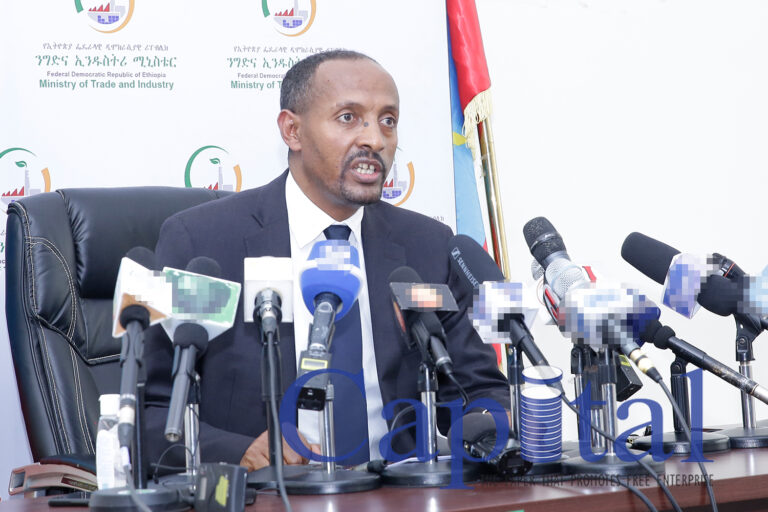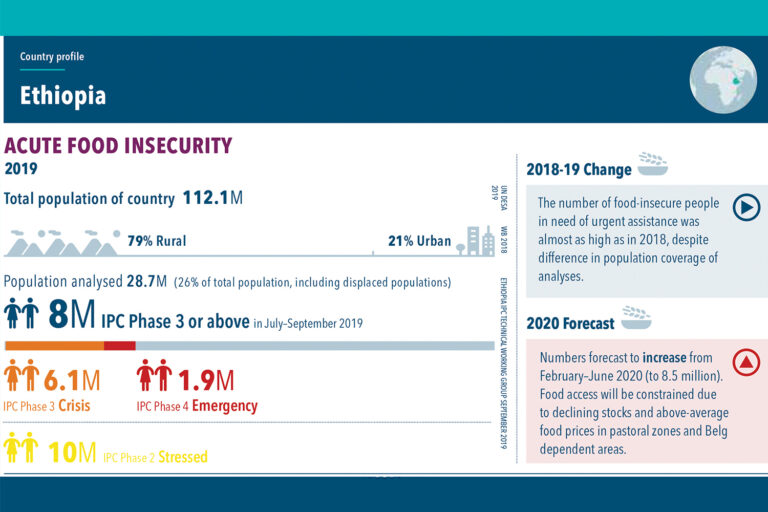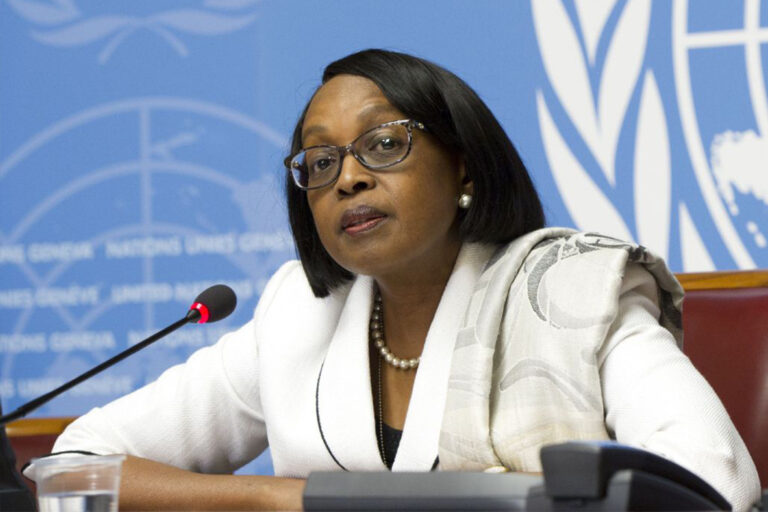International financial institutions are eager to support Africa’s biggest airline, Ethiopian Airlines from the crises of the pandemic covid 19.
“Ethiopian airlines is a flag ship not only for Ethiopia but also for Africa considering this international financial bodies are becoming interested to support the airline” said Ahmed Shide, Minister of Finance in a press response for the question collected from media houses and journalists to the committee to tackle the coronavirus.
According to Ahmed, the World Bank, International Financial Corporation /IFC/ and African Development Bank are talking with the government to support the airline, “additional to the support of the financial institutions, the government will also give support based on the economic response plan to help the airline through this difficult times.”
Ethiopian Airlines has reported that it loses 550 million dollar in revenue from January up to April after the corona virus pandemic brought passenger traffic to a near-complete halt.
Despite the financial loss, the company’s CEO remains confident that the airline can keep flying, in part by increasing its cargo business.
Last week in a press briefing Tewolde G. mariam CEO of the airline acknowledged that the airline is in a serious financial crisis, but, Tweolde expressed his belief that Ethiopian Airlines will ride out of the current storm. He said that the company was cushioning the financial blow by finding new streams of income.
“We are now focusing on cargo. The cargo business is relatively doing well because urgently required medical supplies are needed all over the world from east to west, west to east, north, south and so on. We are also trying to convert some of our passenger aircraft to cargo,” said Tweolde.
“Cargo business and MRO are becoming the main business of the airline,” said Tewolde adding “even if the airline is losing in revenue, we do not expect any governmental support; the airline came up with a new strategy in response to the business slowdown.”
He also said the company has saved money by cutting back deeply on daily flights and suspending talks with Boeing and Airbus to replace older aircraft in its fleet.
However according to Ahmed, if the situation continues the airline will no longer sustain itself more than three months and other sectors depend on the airline will face economic difficulties, the government need to support the airline as a contributor to the overall economy.
According to Tewolde, the airlines has been in talks to defer lease payment on aircraft and it may seek deferrals on some payments of 2 billion dollar in debt.
“In relation with restrictions of international movements and trades several economic sectors of the country has been highly dented, including the tourism, hotel and tour operations” said Ahmed.
The airline has more than 16,ooo employees and according to the International Air Transport Association currently 1.1 million employees are supported by air transport and tourists arriving by air.
The supply chain is estimated to support 1.5 billion dollar of the GDP and spending by foreign tourists supports a further 2.61 billion dollar to the GDP totaling the sector contribute 4.1 billion dollars to the economy.
“Not only in Africa we are also serving the world, which we are operating in major trade lanes between Africa and Europe, Middle-east and Asia providing a convenient and reliable cargo service,” said the CEO. “We have recalibrated our cargo operations and networks in light of the current demand in air cargo business.”
The airline is expecting to be involved in a critical capacity in Africa’s pandemic response. On Monday it finished distributing the second batch of masks, testing kits, ventilators, and other supplies donated to African countries by Jack Ma Foundation. And last week the United Nations opened an aid transport hub in Addis Ababa that will rely on Ethiopian cargo jets to move supplies and aid workers across the continent.
International institutions shows interest in supporting Ethiopian Airlines
Ministry targeting those who hike prices of commodities
As soon as the first case of coronavirus was reported in Ethiopia the price of some goods showed a significant increase. The goods include medical kits, sanitizers, disinfectants, masks and other consumable goods such as oil, rice and teff.
The Ministry of Trade and Industry (MoTI) said that it has observed a price hike and shortage of teff in the market. “Although the problem is on the supply and distribution the government is trying to solve the problem by giving financial support to unions and cooperatives. Currently unions are distributing 1.5 million quintals of teff to the market,” said Melaku Alebel Minister of Trade and Industry.
A report by the MoTI shows the government has found 25,068 traders who were unjustifiably increasing the price of goods all over the country.
Starting from March 10, 2020 up to now MoTI took measure on 25,068 traders who were accused of manipulating prices of goods. 10,000 were released by warning; 13,350 were fined; 424 arrested and waiting trial; 404 banned from doing business and 890 licenses were revoked.
According to the ministry, the government is working to develop the production of such goods locally to increase the supply.
Currently 81 factories are selected to produce 5.1 million masks per day and seven of them has already started the production. The minister also said that the country has a capacity to cover the local demand of detergents, as 43 factories are producing 2,258,200 kg of soap and 357,951 liter of liquid soap per day.
To control the price hike on food commodities the ministry is distributing the commodities through unions, including sugar, wheat, maize, rice, oil and teff.
The Minister also said that the country is also working to increase the oil deposited capacity of the country.
“The international crude oil price drop is an opportunity for Ethiopia, we are working to increase our capacity on oil depot and increase the import rate of oil,” said Melaku.
According to the minister the country imports 399 million liters of crude oil per month; the country spends more than 3 billion dollars annually.
The Ministry has reported that the eight months export performance of the country fetched USD 1.8 billion, half a billion lower than its target. However as the ministry stated the country does not face much challenges on the export of items as it was expected since most of the items are related with food commodities.
As famines of ‘biblical proportion’ loom, UN urged to ‘act fast’
A Global Report on Food Crises released by United Nations has stated that more people face acute food insecurity and malnutrition in the wake of the COVID-19.
The report indicated that at the close of 2019, 135 million people across 55 countries and territories experienced acute food insecurity, noting that additionally, in the 55 food-crisis countries, 75 million children were stunted.
This, according to the report was the highest level of acute food insecurity and malnutrition documented by the network since the first edition of the report in 2017.
The report by the Global Network Against Food Crises, an international alliance of United Nation, governmental, and non-governmental agencies working to address the root causes of extreme hunger.
The 2020 annual Global Report on Food Crises, showed also that in 2019, 183 million people were classified to be in stressed condition – at the cusp of acute hunger and at risk of slipping into crisis or worse if faced with a shock or stressor, such as the COVID-19 pandemic.
It added also that about 73 million of the 135 million people covered by the report live in Africa; 43 million live in the Middle East and Asia; 18.5 million live in Latin America and the Caribbean.
The key drivers behind the trends analysed were: conflict – the key factor that pushed 77 million people into acute food insecurity; weather extreme – affecting 34 million people; and economic turbulence which accounted for 24 million.
Ethiopia
For Ethiopia the report states that while Ethiopia has made development gains over the last two decades, 27 percent of the population, or 30.2 million people, were still living below the poverty line (USD 1.90 a day).
The report also states that over 70 percent of rural Ethiopians are severely poor according to the Multidimensional Poverty Index. “Frequent and severe droughts have eroded resilience for rural households that have lost productive assets and have had little time for recovery between drought events,” reads the report.
The report also states that about 8 million people were in Crisis or worse across Afar, Amhara, Oromiya, Southern Nations, Nationalities and Peoples’ region (SNNPR), Somali and Tigray regions from July–September 2019, despite receiving humanitarian food assistance. This includes about 1.9 million in Emergency of whom over 1 million were in Oromiya. Around a third of the population in Somali and Oromiya faced Crisis or worse. An additional 10 million people were classified in Stressed level.
The population in Crisis or worse was similar to that of 2018, when estimated that 8.1 million people were food insecure and in need of assistance. At the start of Meher harvests in October 2019, food security improved, but about 6.7 million people remained in Crisis or worse.
Ethiopia is also the second largest host of refugees in Africa. The result of the annual report indicated that monthly food assistance for refugees lasted from 14–25 days, creating food gaps for up to 17 days a month.
Stating the factors driving acute food insecurity the report pointed out that extreme weather and crop pests contributed to the low yield.
The February-May Belg rainy season was characterized by late onset, erratic distribution and below-average rains. A below-average secondary Belg season harvest in eastern Amhara, eastern Oromiya and north-eastern SNNP regions was expected. In East and West Harerghe zones, where no significant rains were received until April and seasonal cumulative precipitations were up to 60 percent below average, the cereal output was very poor, with crop failures reported in some areas. In western key-producing areas, the June–September Kiremt rains were up to 30 percent above average and aggregate cereal production is estimated at above-average levels. However, unseasonal heavy rains during the October/November harvest resulted in localized crop production shortfalls. Crops were attacked by desert locusts at the end of the year in northern and south-eastern Tigray, north-eastern Amhara and Eastern Oromiya regions. While coordinated control measures implemented by farmers, local communities and the Government have contained crop losses, substantial localized losses were reported in parts of Oromiya zone.
WHO urges countries not to let COVID-19 eclipse other health issues
Public health systems in Africa are coming under severe strain as the unprecedented COVID-19 pandemic persists. But as countries battle to bring the outbreak under control, efforts must also be maintained on other health emergencies and progress made against diseases such as malaria or polio preserved, the World Health Organization (WHO) urged.
Prior to the arrival of the novel coronavirus in Africa, WHO was stressing the need for countries to ensure the continuity of routine essential health services. “An overburdened health system not only undermines the effectiveness of the response to COVID-19 but may also undermine the response to a whole host of preventable threats to human health. Even brief interruptions of vaccination make outbreaks more likely to occur, putting children and other vulnerable groups more at risk of life-threatening diseases” WHO said in a statement.
“I urge all countries to not lose focus on their gains made in health as they adapt to tackle this new threat,” said Dr Matshidiso Moeti, WHO Regional Director for Africa. “We saw with the Ebola Virus Disease outbreak in West Africa that we lost more people to malaria, for instance than, we lost to the Ebola outbreak. Let us not repeat that with COVID-19.”
Confirmed COVID-19 cases in Africa continue to rise, now exceeding 28,000. WHO is supporting countries in all aspects of the COVID-19 response and has recently published guidelines for ensuring the continuation of critical health services, including immunization and anti-malaria campaigns. The guidelines stress the need for countries to take a dynamic approach that mitigates any unavoidable pause in vaccination campaigns.
The consequences of disrupting efforts to control malaria in Africa could be particularly grave. Current estimates suggest that sub-Saharan Africa accounted for approximately 93% of all malaria cases and 94% of deaths, mainly among children under five. A new analysis by WHO and partners suggests that in a worst case scenario if malaria prevention and treatment services were severely disrupted as a result of COVID-19, the number of malaria deaths in 2020 in sub-Saharan Africa could rise to double the number in 2018.
“Africa has made significant progress over the past 20 years in stopping malaria from claiming lives. While COVID-19 is a major health threat, it’s critical to maintain malaria prevention and treatment programmes. The new modelling shows deaths could exceed 700 000 this year alone. We haven’t seen mortality levels like that in 20 years. We must not turn back the clock,” said Dr Moeti.
There are countries like Benin, the Democratic Republic of the Congo, Sierra Leone, Chad, Central African Republic, Uganda and Tanzania which are continuing with their insecticide treated bed net campaigns and other important malaria prevention activities. Countries are adapting their malaria strategies to the current complex situation.
Another essential health service is immunization. The response to COVID-19 has already disrupted vaccination efforts on the continent. Despite considerable progress on immunization, one in four African children remain under-immunized. Measles vaccination campaigns in Chad, Ethiopia, Nigeria and South Sudan have already been suspended because of COVID-19, leaving approximately 21 million children who would have otherwise been vaccinated unprotected.






